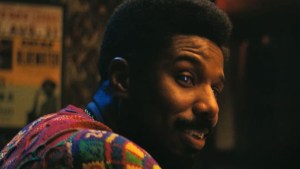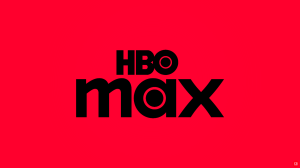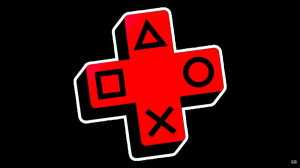
Cyborg series writer David Walker’s rise to fame shares at least one similar aspect to millions of other comics fans around the world. “My first comic was an issue of Batman that was given to me when I was 3 or 4,” Walker told ComicBook.com in an email interview. Walker credits comics for not only helping learn how to read but also introducing him to classic literature in the form of old Classic Illustrated comics. Walker encountered the works of famous authors like Charles Dickens, Alexander Dumas, and Herman Melville via Classics Illustrated, which were among his favorite comics as a child.
Videos by ComicBook.com
A common theme in much of Walker’s work, like today’s Cyborg #2 from DC Comics, is the exploration of a character or creative work, and drawing out its core essence. For instance, Walker is known outside the comics community as an expert on African-American cinema, particularly the Blaxploitation genre of films. The writer founded BadAzz MoFo as a zine discussing Blaxploitation and other pop culture commentary issues in 1996, which grew into a full-fledged magazine and website. Some of Walker’s commentary in BadAzz MoFo is almost archival in nature, documenting various Blaxploitation project and providing the necessary context to fully understand and appreciate those movies. Walker’s work also took him into film, where he worked on projects with Quentin Tarantino, Reginald Hudlin and Boondocks creator Aaron McGruder. He even produced his own movie take on the Blaxploitation genre, titled “Black Santa’s Revenge.”

When asked about comics’ relationship with Blaxploitation, Walker pointed out that comics never really connected with the core Blaxploitation genre. For instance, Walker noted that while many see the Marvel hero Luke Cage as a direct result of Blaxploitation, there’s actually a much more complicated history at play. “There’s definitely some connection between Cage and blaxploitation, but if you really know anything about black representation in popular culture, you’d see that Cage is influence as much, if not more, by the work of famed author Chester Himes.” (Himes wrote the Harlem Detective series.) “Cage is very much a Himes-like character, just as blaxploitation is an offshoot of Himes’s work.”
Walker’s first professional gig in comics was translating Santa Inoue’s Tokyo Tribes manga into English. He praised Inoue as a master storyteller and noted how Inoue could decompress the narrative without causing the story to drag. “[Inoue] can take a scene and allow it to breath in a way that makes it several pages long instead of several panels while never being boring,” Walker said. He also noted that his translation work on Tokyo Tribes gave him the chance to really examine the comics medium. “First and foremost, comics are a visual medium, and working on Tokyo Tribes gave me a chance to study the power and potential of the medium in a way that I might not do as a reader.”
Given Walker’s immense depth and knowledge of the Blaxploitation genre, it’s not surprising that one of his breakout indie hits was the Glyph Award winning Shaft comic. Readers praised Shaft as a faithful adaptation of the original movies and novels that illuminated both the character and the time period in which it was set. “I wanted to make sure that my interpretation of Shaft was not a caricature, or some kind of comical portrayal,” said Walker on his work on the Dynamite series. “In the original novels (of which there are seven), Shaft is a hardboiled detective, fresh out of the Vietnam War, with a penchant for killing. It’s not about giant afros or bellbottom pants. I wanted to write a series about a violent man looking to find his place in the world, and at the same time pay respect to Tidyman’s original work.”

Walker’s work on Shaft attracted the attention of larger publishers. DC Comics approached Walker to pitch some ideas for comics series, which led to Walker pitching a new Cyborg series, the character’s first solo ongoing since his creation in 1980. “I jumped on the opportunity because I wanted the chance to take my career to a new level,” Walker said. “It isn’t that often that opportunity actually knocks on your door. Most of the time, you have to go to opportunity’s house, kick in the door, and then drag it off back to your place, all the while hoping to don’t get arrested for kidnapping.”
Brian Cunningham, Group Editor for DC Comics, told ComicBook.com that Walker’s pitch included a number of topical and relevant themes that were tailor-made for Cyborg. “On the technological side, the theme of ‘disconnection from humanity’ is relatable to everyone tethered to a smart phone,” Cunningham said. “So, imagine if that smart phone was actually part of your body 24/7, always on.” Cunningham also noted that Walker wanted to explore Cyborg on a very human level. “David wanted to tell the story of a young African-American finding his path in the world, and the challenges that world puts in front of him, even if he is half-machine.”
Reading through Shaft and Cyborg, it’s evident that Walker strives to fully understand and appreciate the characters. It’s no surprise that Walker approached Cyborg similarly to his Shaft series. “My approach to both characters has been to tell the best possible story I can tell. That requires getting to know the characters, and understanding what makes them tick,” he said. “The only real difference is that I started writing Cyborg after I quit drinking caffeine.”
One of the core elements that jumps out in Cyborg is how quickly Walker establishes the character as a human being. In one scene set in STAR Labs, one of Victor Stone’s colleagues lashes out at a group of scientists studying the circumstances around Cyborg’s miraculous return from a brush with death. “Victor is here in the room with us right now!” the character shouts. “Can the two of you at least have the courtesy to acknowledge that?” A panel later, Cyborg, his face half covered in machinery, gives his friend a small, sad smile. “Sarah, it’s okay,” he says. There’s almost an acceptance in Cyborg’s eyes, a resignation to the constant clinic probes to which he’s subjected. It’s a quiet but powerful moment, something readers don’t expect coming from a character typically used as the Justice League’s walking computer/cell phone.
Cyborg is very character driven and contemplative, showing the title character in a constant state of melancholy as he grapples with his mostly mechanical body. Walker strove to recapture that humanity in Victor Stone, instead of the showcasing his robotized nature. Walker hopes that when Cyborg readers take away all of the machinery, Victor Stone is still a human being. “Too often we let outward appearances and preconceived notions guide our perceptions of other people, and quite often we are wrong,” Walker said of the character. Walker also said that he enjoys exploring the human condition and character-driven storytelling in all of his work, which was evident in Cyborg. “I like playing with the complexity of human relationships and dealing with the nuance of how people really tend to move through the world,” he says.
Walker compared writing Cyborg to winning the lottery. He said it felt surreal to see his name on a major superhero title. “The best part of it is sharing credits with Ivan and Joe and Adriano and the editorial team—and the letterer, even—because it is the team that makes this thing come together.”
Moving forward, Walker hopes to continue making waves in the comics industry. He wants to find a balance between work for hire projects like Cyborg and his own original works. But ultimately, his biggest goal is to continue deliver compelling stories while finding more work. Fortunately for the latter goal, there are plenty more ideas in Walker’s head. “The list of characters I want to work with is incredibly long. I’m trying to convince DC to let me do a mini-series starring all the ethnic characters from Super Friends (Apache Chief, Black Vulcan, El Dorado, Samurai, etc.). I’ve got an exciting new project coming from Marvel in 2016, which will get people really excited.” There are plenty of neglected and misinterpreted characters in the comics universe, and David Walker might just be the man to showcase them to the world. But one fact is for certain: Walker isn’t taking his opportunities in comics for granted.
“More than anything,” he said. “I’m just living my life, and remaining thankful that I get to write comics.”
Cyborg #2 hits comic shelves and digital devices today.









